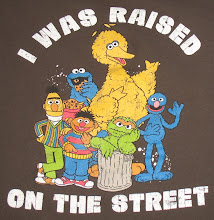..
.
Another blog post? Oh, ducky lays! And I'll keep 'em comin', fulfilling my promise of a blog post a day until I get too lazy (or find something better to do) and one day there isn't a blog post, and then a few days later I reveal no such promise was ever made and I was just making it all up.
Today's post is a special installment of Dear Crabby, where I take the sometimes inane, sometimes dumb, sometimes thought-provoking, but always entertaining questions from strangers posting to other websites and give my responses here, where they're sure to go unnoticed.
seawolf, in a post on writingforums.com, asks:
Dear Crabby,
Is it technically incorrect to write a novel in first person, if the character telling the story dies at the end?
I'm thinking no, but I'm not 100% sure.
Well, seawolf, you have to remember that the tense in fiction isn't a literal, tangible thing. A past tense story doesn't literally imply the events happened yesterday (and, as a side note, I was recently reminded that yesterday is not the past tense of today, lol). Also, remember that first person, depending on your approach, doesn't even necessarily mean your main character is directly 'telling' the story to the reader. I know, you're confused, but stay with me.
In a reminiscent narration the main character is recounting events from an implied point in present time. But remember, this is story time, not reality time. Meaning, the story has a timeline, and the actual time and place of the story is in the present, with the character recounting past events. This kind of story in most noticeable in the "I'll never forget the summer of '69. It was my 9th birthday when..." sort of approach. In this sort of story it is in fact awkward if the narrator/MC dies during the past events they were reminiscing about as it leaves a corpse to the reminiscing, and you probably won't get more awesome than the host of Tales from the Crypt, so why bother?

Think of it like this. There's a narrator in the present telling you about their own adventures that start in the summer of '69. Then, in the Fall of '87 the narrator dies. That means, in the story's time line, the narrator can't then be recounting past events as they sit at their desk in the Spring of '99 without some kind of gimmick that made them cheat death.
To avoid using some lame gimmick like them writing a story from the grave or inventing some contrived mechanic about you, the writer, finding a diary and this is the character's story in their own words, like way to much of classic literature when it was scandalous to write fiction so writers contrived such tales within tales... just don't use a reminiscent narrator.
But, but, but, you mean there's more than one type of POV within the designation 'first person'?! Yes, and face-palm. A term like 'first person' doesn't begin to explain the perspective someone is writing and all the things they can't and can't do. It's like asking "is it safe to drive my car 100mph?!" Well, that depends on a million things that the word 'car' isn't yet describing. A Geo Metro on four donuts in the zombocalypse, and I'm gonna say no, not as safe as a BMW on the autobon in 1997 blasting Barbie Girl.
Pro tip: first thing to do if you want to be a successful writer, or just not dumb, is learn to ask better questions than something so vague as 'can this be done in first person.'
Answers: a first person story can still be in past tense and unfold as if happening for the first time and without that voice from the future giving input (of the story's time-line future, not reality!). Meaning, a character/narrator comes to a fork in the road, you don't write: had I only taken the left fork I'd have seen a monkey, but I chose to take the right fork instead. The character doesn't know anything beyond the here and now, which isn't literally our here and now (we're real, not inside a story... sorry, but I have a feeling some people still may not be getting that concept). In a non-reminiscent first-person narration the character can't know what's down each fork, because they don't have the advantage of hindsight, so just has to guess and hope they pick the fork with the monkey.
So, yes, you can have first person, any tense, and have the character die as long as the POV isn't a reminiscent narration, and instead has the events unfolding as if for the first time. This is the easiest solution, but as mentioned, you can also just come up with some gimmick about how their story is being told from beyond the grave.
Oh, and friendly reminder that gimmicks--no matter how cool you think they are or how long you spent contriving, err I mean thinking up--are usually bad.
I'll never understand how so many aspiring writers get so confused over POV. As always, I suspect it's a symptom of not reading enough. But, in any event, there you have it, hopefully that will help clear up yet another question about POV... until tomorrow when the same thing is asked on dozens of writing forums and continues to stymy hundreds of other writers as they invent some nonsense answer because they too simply haven't read very much. All this knowledge is free, people, in libraries across the globe!
I hope that helps, seawolf,
Crabby

But one time, at band camp...
ReplyDeleteOops.. wrong one!
One time, on a writing forum, they said...
Ohnevermind. This post is awesome!
Can I just say that I love you? :D
ReplyDeleteAnd consider yourself followed...in a non-creepy, not-at-all-stalkish way.
Yes!
ReplyDeleteAnd non-creepy, not-at-all-stalky following? Well, I suppose that can be fun too, so thanks!